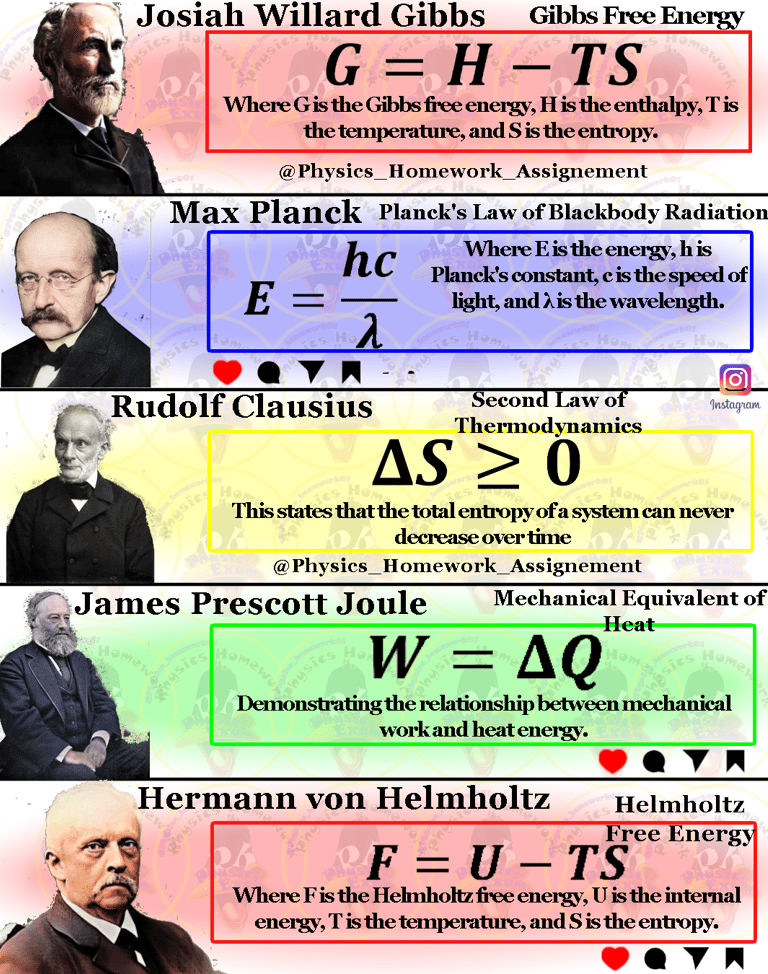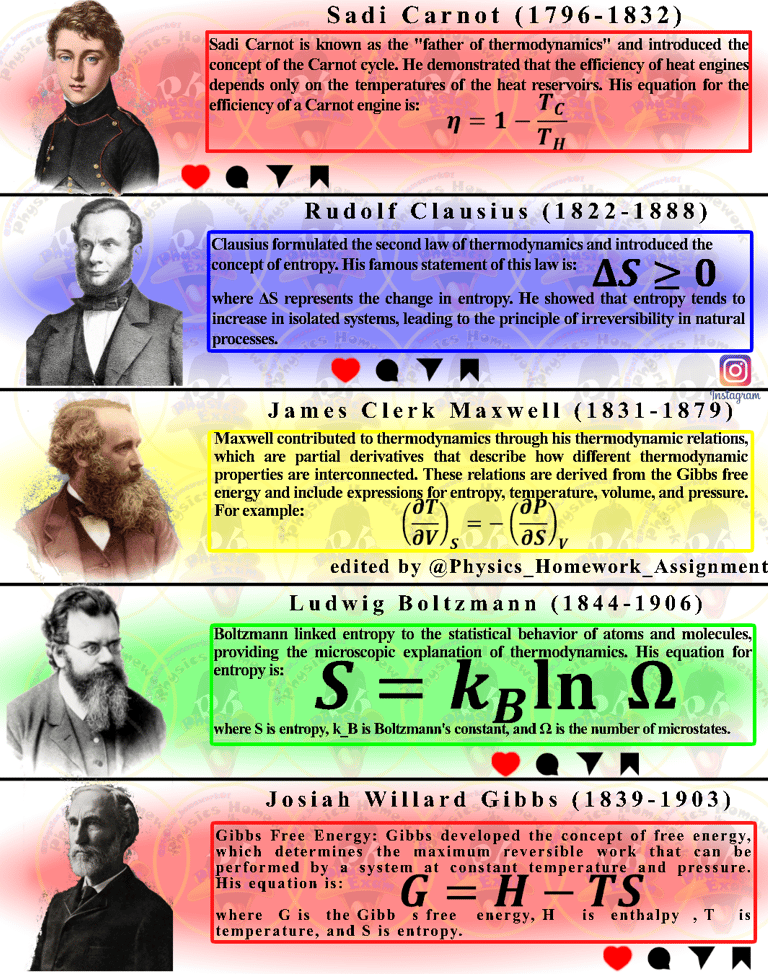Thermodynamics
Blog post description.
3/19/20251 min read


Thermodynamics, the study of heat, energy, and work, has been shaped by the contributions of many great scientists. Sadi Carnot, known as the "father of thermodynamics," introduced the concept of the Carnot cycle, which laid the foundation for understanding heat engines and efficiency. Rudolf Clausius expanded on Carnot’s ideas by formulating the second law of thermodynamics and introducing the concept of entropy, a measure of disorder in a system. James Clerk Maxwell contributed by developing kinetic theory, which describes how gas molecules move and exchange energy, leading to a deeper understanding of temperature and pressure.
Ludwig Boltzmann further advanced kinetic theory by establishing statistical mechanics, linking microscopic molecular behavior to macroscopic thermodynamic properties. His work on entropy provided a statistical interpretation of the second law. Willard Gibbs introduced Gibbs free energy, a crucial concept for predicting chemical reactions and phase transitions in thermodynamic systems. These contributions helped bridge the gap between theoretical thermodynamics and practical applications in chemistry, engineering, and material science.
Max Planck revolutionized thermodynamics by solving the problem of blackbody radiation, leading to the birth of quantum mechanics. His work introduced the concept of energy quantization, which became fundamental in modern physics. James Joule’s experiments demonstrated the relationship between heat and mechanical work, establishing the principle of energy conservation. Hermann von Helmholtz expanded on this idea by formulating the first law of thermodynamics, stating that energy cannot be created or destroyed. These pioneering contributions continue to influence science and engineering, shaping technologies from power plants to refrigeration and beyond.


Solutions
Expert assistance for your physics lab assignments.
Support
Help
© 2025. All rights reserved.
